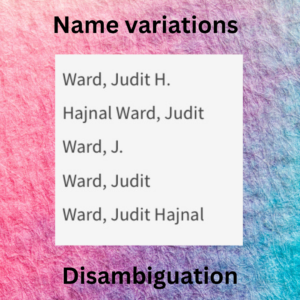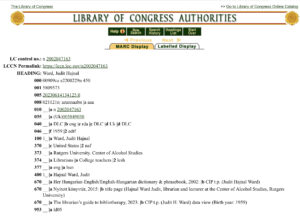At Books We Read, we love a good mystery! Whether it’s crime fiction, cozy mysteries, true crime, or a challenge to track down something in an archive related to one of our favorite books and authors, we just love mysteries. Our other passion is audiobooks. They are not only a practical alternative to reading, but also trailblazers of inclusion with their diverse voices, both figuratively and literally.
It just so happened that I recently discovered a few interesting “freebies” on one of the audiobook platforms, the one that allows you to borrow only a certain amount of audiobooks in the same month. These freebies don’t count toward your monthly allowance, so I decided to give them a try. That’s where this magical mystery tour started.
Surprising patterns
The first thing that I noticed was that the freebies seem to come from the suspense/mystery genre, or at least they’re tagged as such on the platform. I haven’t found examples to the phenomenon I’m going to present in other genres yet.
 The second surprise was the discovery that the authors all had unusually simple names that often hid their gender: a single, common first name, followed by a single-syllable last name. That’s strikingly different than what I’m used to in academic writing, where middle initials are strongly recommended for the purpose of disambiguation, especially with a common surname. With a “Jesse Doe”-type of name, it would be a big no-no for any aspiring author to not have a middle name. The name will not be recognized and authorship will not be properly attributed in the different databases. As an example, see variations of my name for disambiguation in a database researcher file. There goes one’s hard work in terms of research output! Jesse Doe, on the other hand, can successfully hide in their digital insignificance.
The second surprise was the discovery that the authors all had unusually simple names that often hid their gender: a single, common first name, followed by a single-syllable last name. That’s strikingly different than what I’m used to in academic writing, where middle initials are strongly recommended for the purpose of disambiguation, especially with a common surname. With a “Jesse Doe”-type of name, it would be a big no-no for any aspiring author to not have a middle name. The name will not be recognized and authorship will not be properly attributed in the different databases. As an example, see variations of my name for disambiguation in a database researcher file. There goes one’s hard work in terms of research output! Jesse Doe, on the other hand, can successfully hide in their digital insignificance.
The third suspicious sign was found in the blurbs accompanying these titles on their virtual dust jackets. Instead of providing a teaser for each book without revealing too much of the plot, the books in the individual series stick with a single description for all titles in the series, perhaps with a sentence or two about the individual title. Again, this is not the best method for promotion and discoverability.
This takes us to the fourth and most suspicious sign: the sheer number of titles in the individual series, a number that is way too big for any single author to write in the given time period. For example, one author seems to have written about fifteen books in each series in about two years, and this author might have as many as six or seven different series. The audiobook platform actually helps with the math. It tallies up the upload count for the last few months or year.
Finally, almost all these books cover identical or similar topics, featuring fearless female protagonists with extraordinary brains and skillsets. Although the plots show some variations, they remind me of what a friend’s dad used to say about American movies back in the day in Hungary: it’s enough to buy the box, they all contain the same story. As for these books, they all remain in the realm of the same kind of suspense.
What are we dealing with here? Sounds like a good mystery to me.
Librarian at your service
 First, I googled all the authors, only to confirm that there is not much information available about any of them. The books are listed as self published on the audiobook platform, so there was no publisher’s or author’s website to promote the author as a flesh-and-blood person either. Their author sites, created on WordPress using two simple templates for the five of them, list only books grouped by series, with similar, nondescript covers, and a generic email for contact information. There are no headshots or bios for any of the authors.
First, I googled all the authors, only to confirm that there is not much information available about any of them. The books are listed as self published on the audiobook platform, so there was no publisher’s or author’s website to promote the author as a flesh-and-blood person either. Their author sites, created on WordPress using two simple templates for the five of them, list only books grouped by series, with similar, nondescript covers, and a generic email for contact information. There are no headshots or bios for any of the authors.
As a conscientious librarian, I also consulted the online database of the Library of Congress Name Authority Files (LCNAF), without much success. The few authors that had entries indicate one or two of these books as sources. They contained no year of birth or any other details like those found in a normal LCNAF, like mine (pictured here).
However, surfing the Internet pointed me to an interesting Reddit thread, where readers, facing the same dilemma, started to speculate about exactly what I was thinking by this point. Namely, they suspect that we are dealing with some kind of a group effort: a collaboration of ghost writers, who published these books in a short time period and in large quantities.
Is this a new trend in publishing? How do the readers feel about it? Stay tuned for the next parts!
[This is part 1 of our Mystery of Collaborative Mysteries, trying to solve the mystery of several identical mystery book series published recently. Includes a bit of the history of ghostwriting and lots of speculations on the use of generative AI in publishing, all a mystery.]
